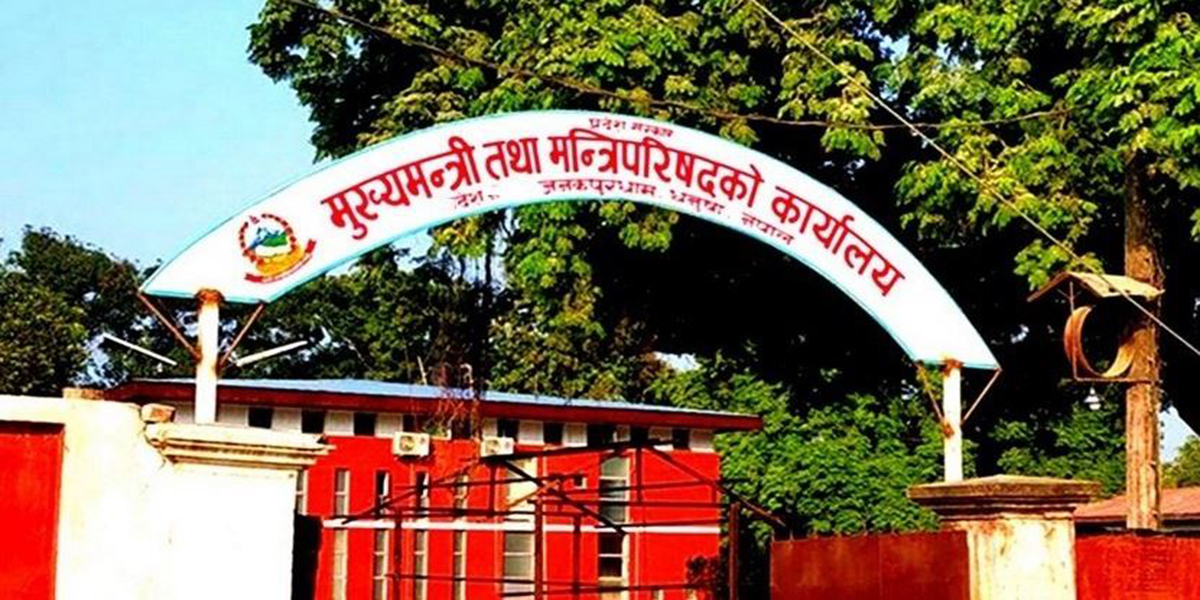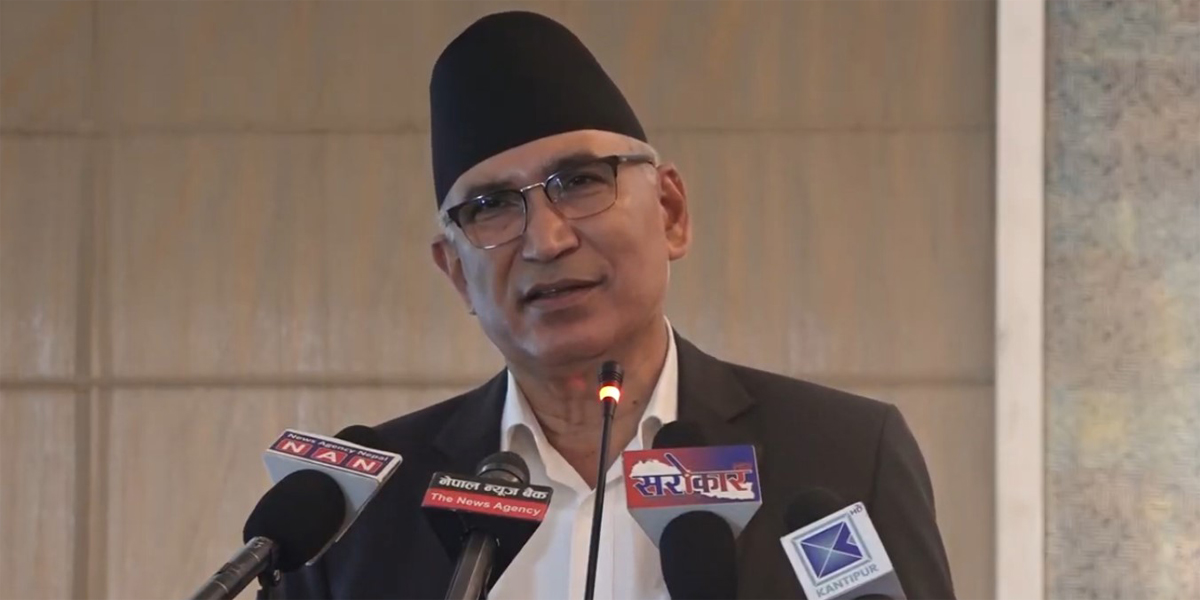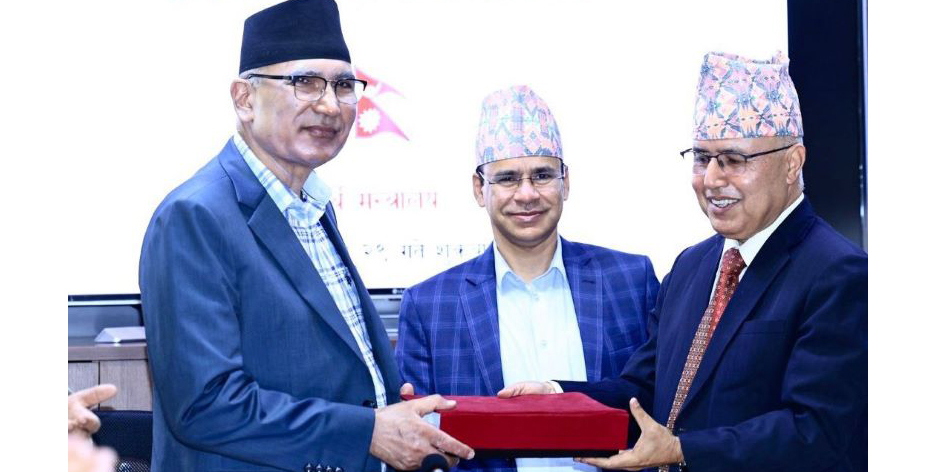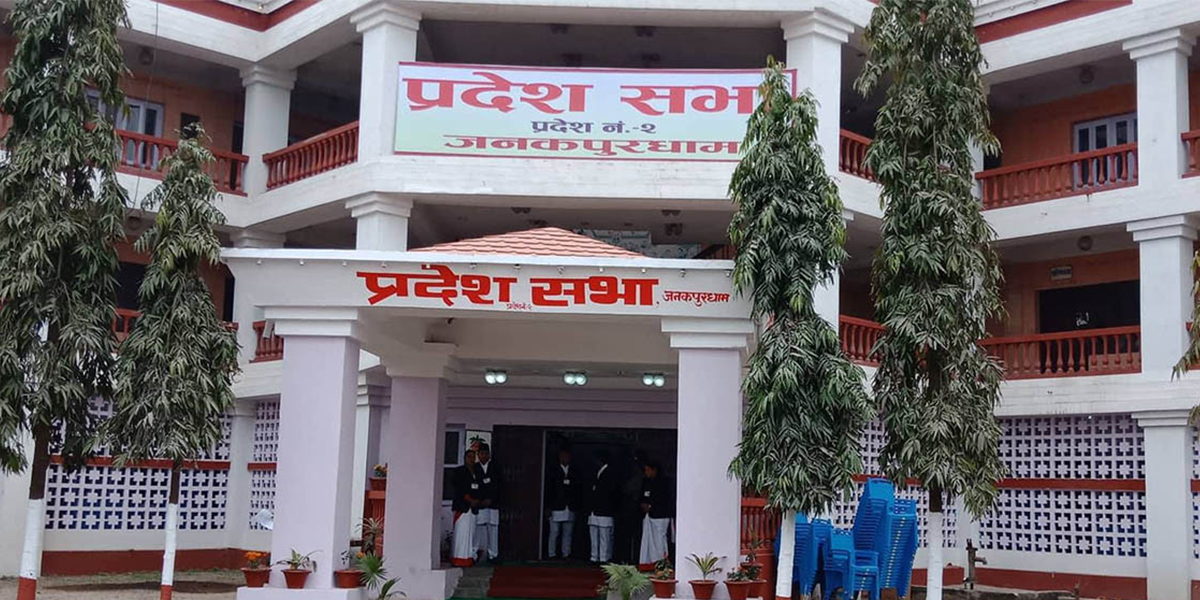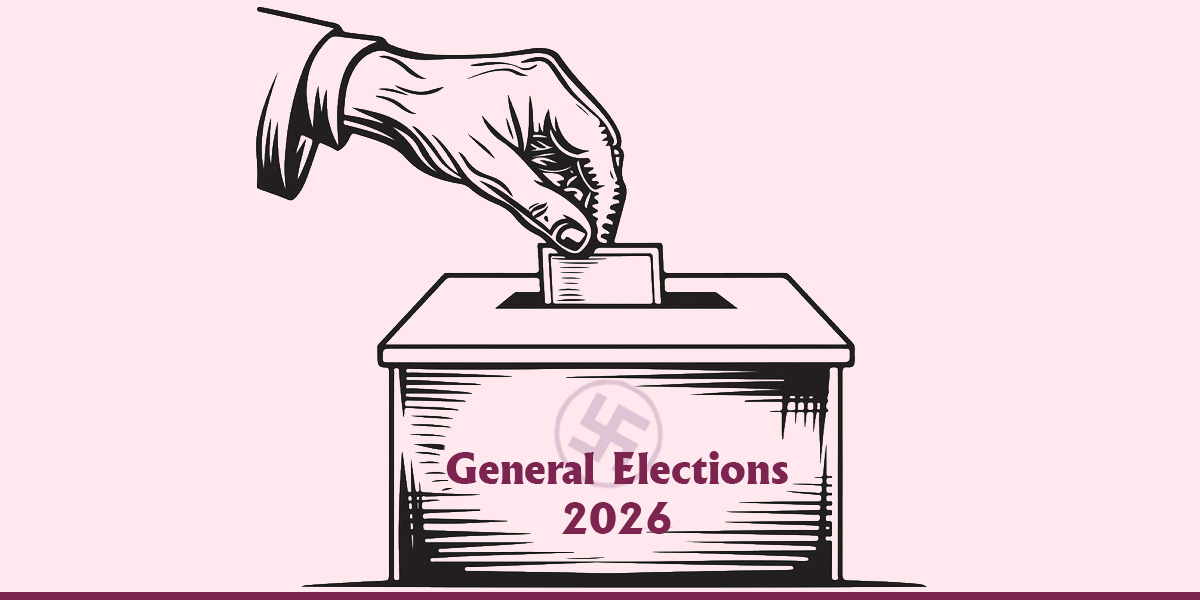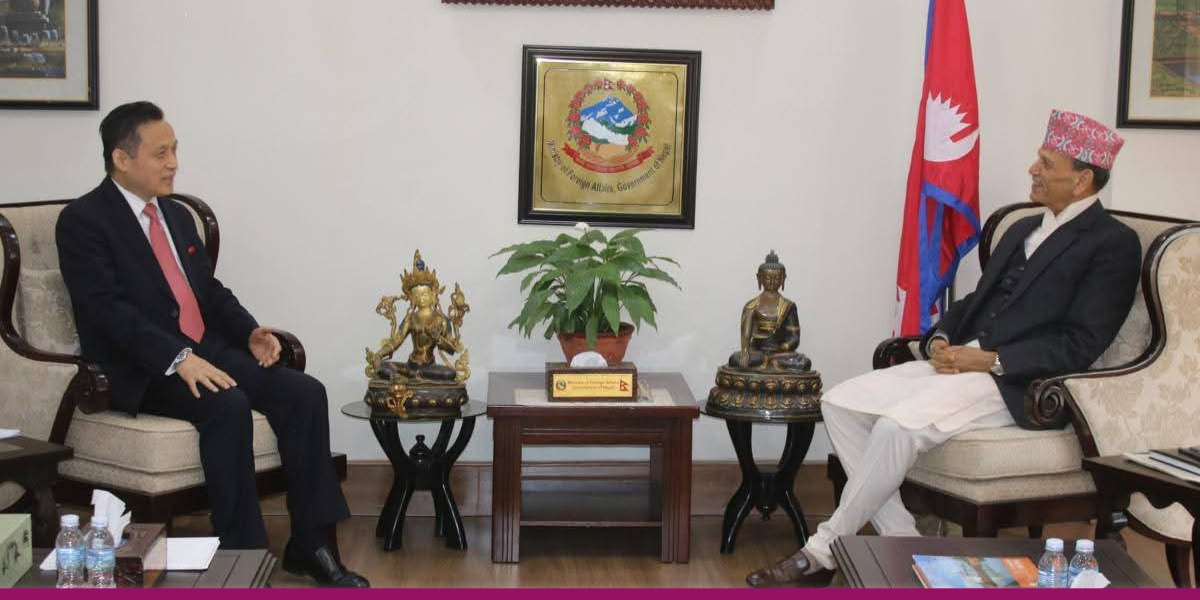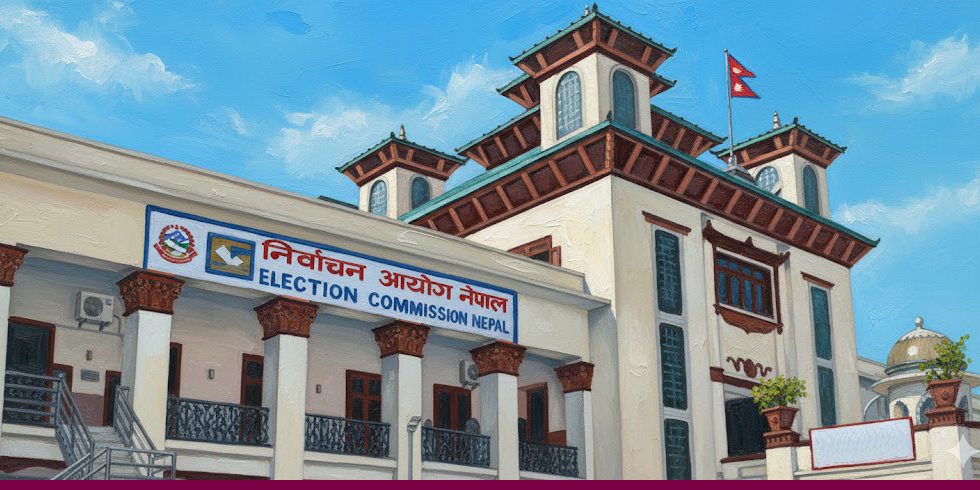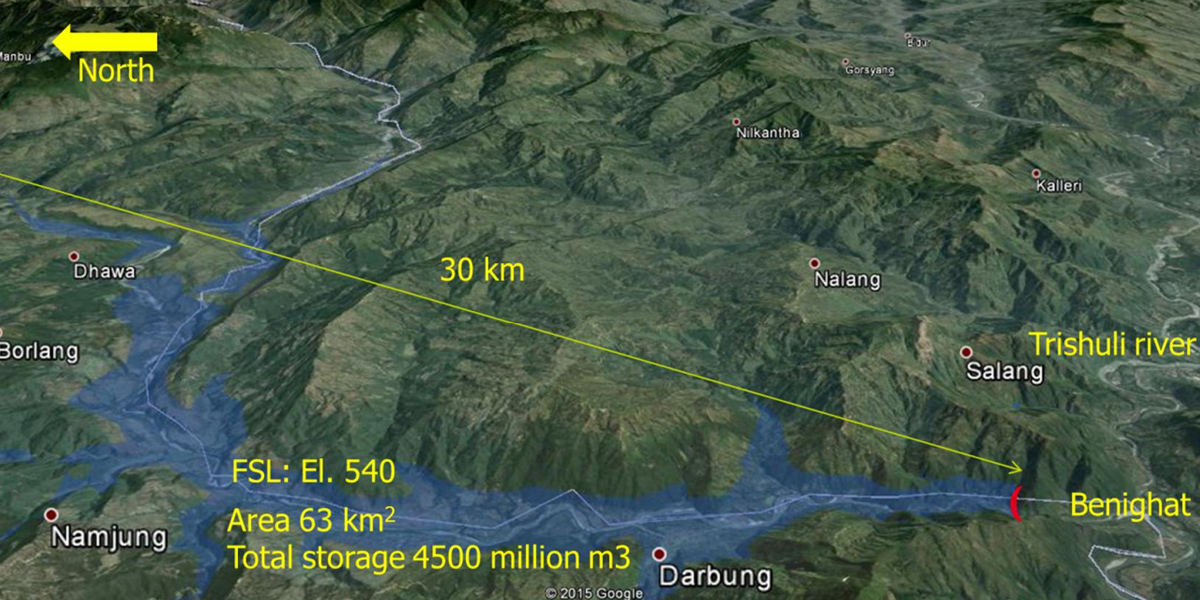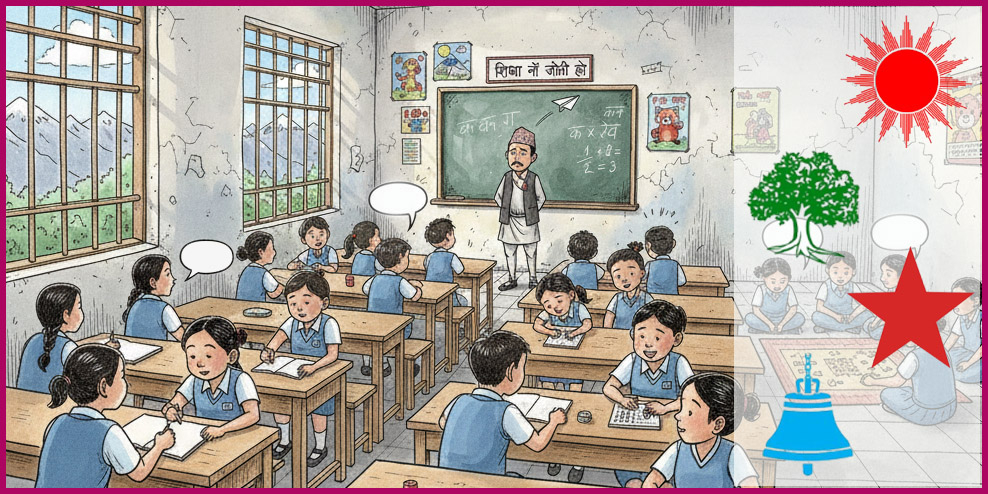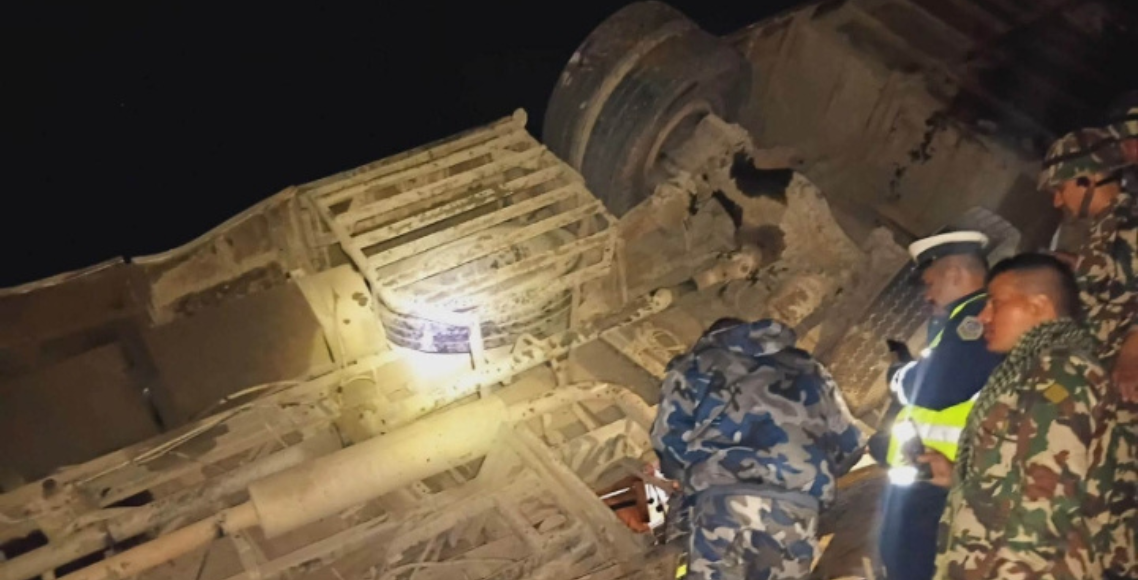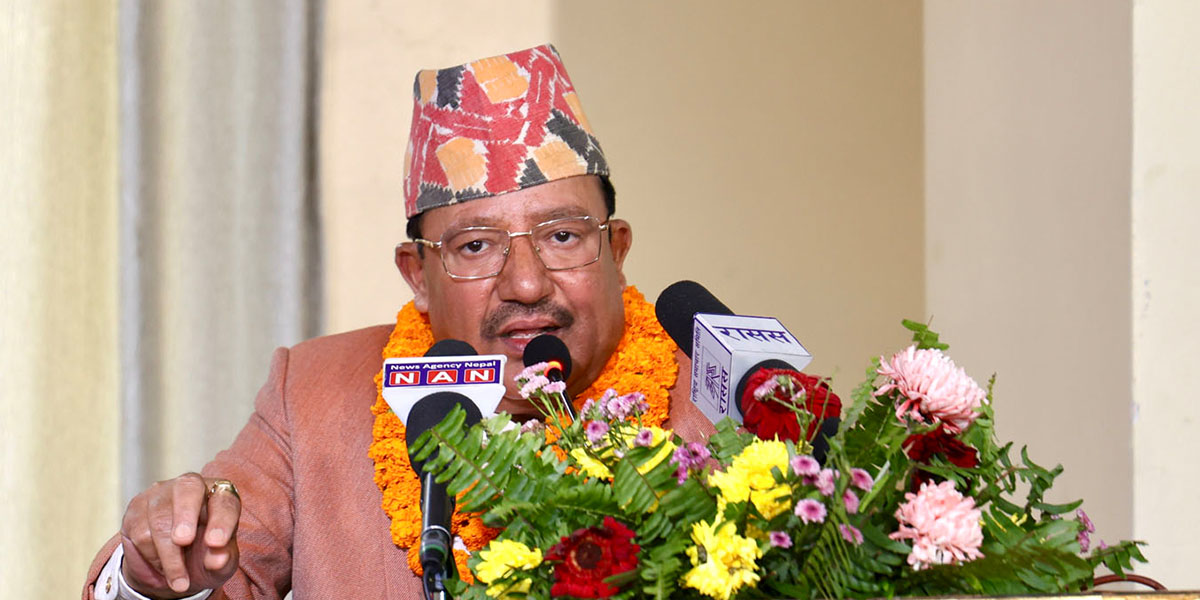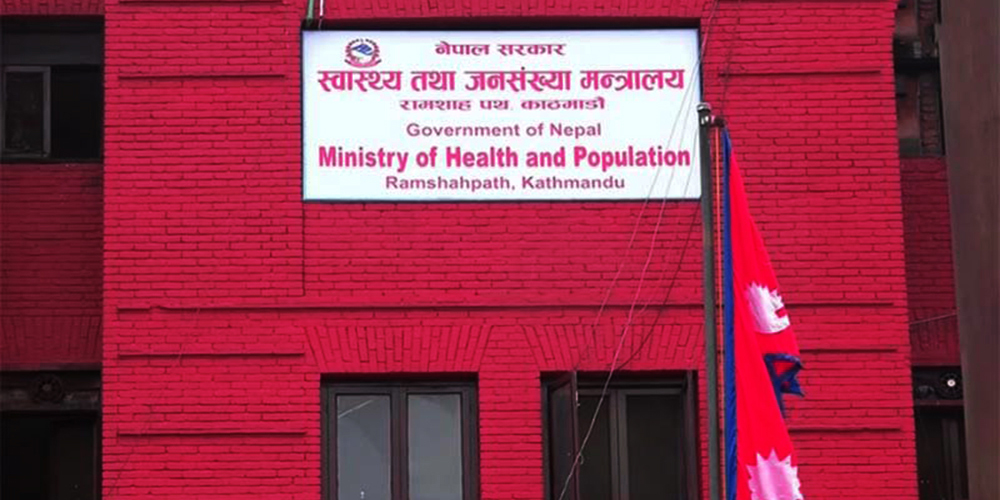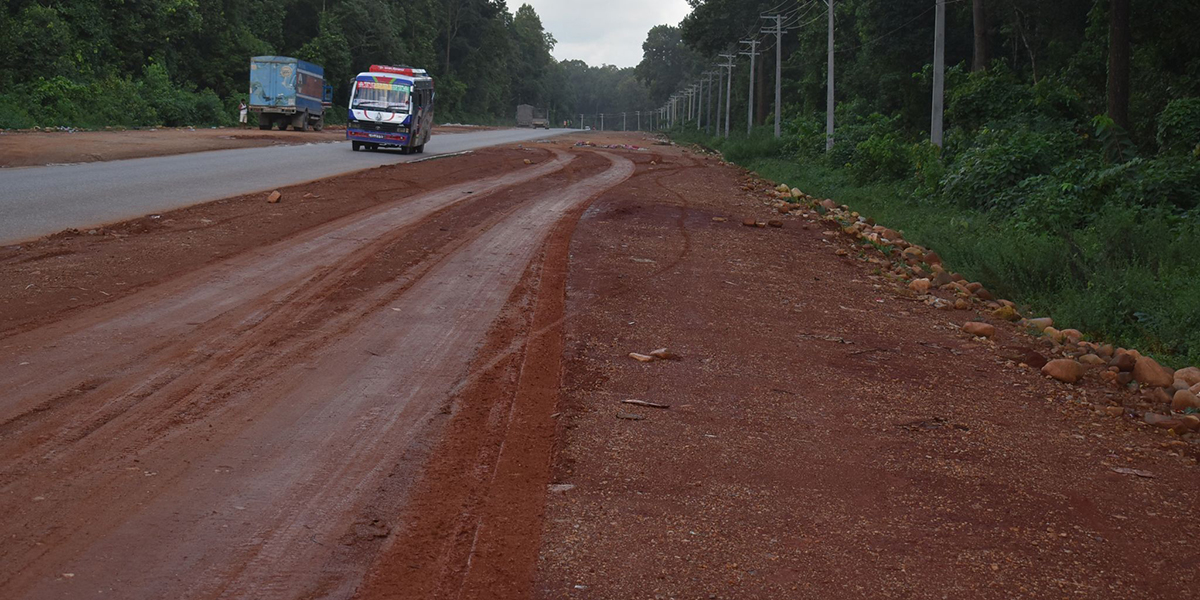 The Narayanghat-Butwal Road Upgrading Project, which was supposed to be completed two years ago, has achieved only 425 physical progress. Photo: RSS
The Narayanghat-Butwal Road Upgrading Project, which was supposed to be completed two years ago, has achieved only 425 physical progress. Photo: RSS
KATHMANDU: In the first four months of the current fiscal year 2023/24, the government managed to spend only 20.32% of its fiscal budget. The largest share of this spending is toward recurrent expenditure – spending on the government’s daily expenses and salaries.
During the period from mid-July to mid-October, the government has managed to spend only 9.94% of its capital budget, while progress in recurrent expenditure stands at 23.76%. According to the Office of the Comptroller General, 17.72% of the money set aside for financial management has been spent in the four-month period.
There are three types of spending areas in the government budget, namely capital, recurrent, and financial management. Financial management refers to the repayment of principal and interest on domestic and foreign loans taken by the government.
To meet its expenses, the government gets income from revenue, and domestic and foreign loans, and grants. Sound revenue collection and maximum capital expenditure with minimum recurrent expenditure is a measure of sound government spending arrangements. However, for the last few years, our situation is exactly the opposite. In the four months of the fiscal current year, the government has mobilized Rs 297.77 billion in revenue, while it has spent Rs 355.88 billion rupees.
This low capital spending, which is basically spent on development and construction works, however, is not new for our government spending system and economy. The instability in the spending capital budget means development works are not gaining momentum in the country. Experts call it the incompetence and inaction of politics and development administration.
“The inability to spend is the proof of political and administrative incompetence,” Economist Dr Chandra Mani Adhikari said. “Capital expenditure is very crucial for the economic development of the country. Unfortunately, the government’s ability to spend capital has been weakening in recent years.”
Spending capital budget at the end of the financial year has become a chronic disease for Nepal. A whopping 17% of the total development budget was spent in the 12th month of the fiscal year 2022/23 alone.
Some efforts, however, have been made to rein in the practice of spending development budget toward the end of the financial year. There is a binding provision in the constitution that the budget must be brought on May 28. Since the budget is brought well ahead of the beginning of a new fiscal year, there is no confusion like before in announcing and passing the budget. The complicated provisions of the past, such as having to approve the budget from the National Planning Commission and obtaining authorization for expenditure, have also been removed. However, the pace of spending still remains slow. This shows that the measures put in place have not been effective in controlling the 11th-hour spending of the development budget.
Economic activities in the country are shrinking as the government is not being able to spend. New employment opportunities have not been created. The private sector, naturally, is discouraged.
“The country cannot make progress like this. The government and higher administrative bodies must take necessary initiatives to help spend the budget on time and build quality infrastructure,” Adhikari added.
“The inability to spend is the proof of political and administrative incompetence,” Economist Dr Chandra Mani Adhikari said. “Capital expenditure is very crucial for the economic development of the country. Unfortunately, the government’s ability to spend capital has been weakening in recent years.”
What is hindering government spending?
In the past, political parties and their leaders used to blame political instability for their inability to spend the development budget. The situation is no longer the same. The political situation is stable now. All three tiers of the federal structure have elected governments. The expenditure that used to be done only by Singha Darbar, the administrative center of the government, in the past is now being done by 753 local governments along with seven provinces. However, the state of capital expenditure is still pathetic.
Dhani Ram Sharma, joint secretary of the Ministry of Finance, said that the government is increasing expenditure after learning from the experience of previous years. “This year, emphasis has been placed on inter-ministerial coordination,” he said. “We will see the results in two months.”
Experts believe that politics is the biggest factor behind slow development spending. Another economist, Dr. Nar Bahadur Thapa, believes that the country is experiencing this situation because the political leadership is not sensitive to development. “Half of our problems will be solved if only the political leadership is sensitive to development expenditure,” he said. “When there is no clean politics and good governance in the country, no sector will develop. Although Singha Durbar looks concerned about the lack of expenditure, no serious effort has been made to remove the bottleneck. Its main fault is politics.”
Economist Dr Nar Bahadur Thapa believes that excessive politicking and ‘bargaining’ in the name of local people and consumer committees fore personal gains are also obstacles to development.
Another obstacle to the development of the country is the wrong attitude of government employees. Experts say that there is a tendency among some employees to not facilitate work that does not benefit them. Many employees are more focused on how to make money and cut down on work time than on the development of the country. The number of government employees who are trying to get unfair benefits by prolonging the work of the project is not small.
Contractors and businessmen are also to be blamed for slow spending. They seem more focused on securing additional budget through cost overruns by extending the construction period. All this is affecting the quality of work and the capital expenditure.
Economist Thapa believes that excessive politicking and ‘bargaining’ in the name of local people and consumer committees fore personal gains are also obstacles to development. “We have seen how some groups create hindrances to development works by making unrealistic demands and inciting people in the project-affected areas,” he added.



